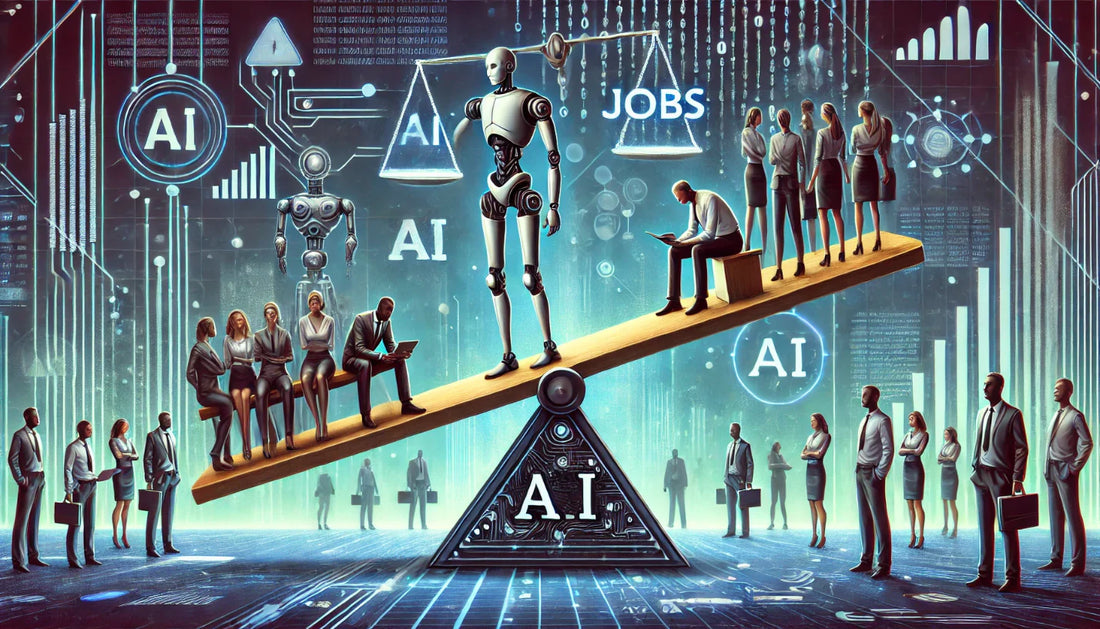AI's Impact on Job Losses Exceeds Company Claims
Kenji TanakaAI's impact on job losses is greater than companies admit, requiring proactive solutions.

The increasing integration of artificial intelligence into business operations is leading to more significant job displacement than companies are willing to admit. While businesses often highlight AI's role in enhancing productivity and creating new opportunities, the reality is that many positions, particularly entry-level and repetitive roles, are being eliminated.
This discrepancy between corporate messaging and the actual impact on the workforce raises concerns about transparency and the need for proactive measures to support affected workers. The long-term consequences of AI-driven job losses could have far-reaching effects on the economy and society.
Highlights
- AI is causing more job losses than companies publicly acknowledge, especially in entry-level positions.
- Many companies are quietly restructuring their workforce to align with AI strategies, leading to job displacement.
- Experts predict that AI could automate or transform a significant percentage of jobs in the coming years.
Read More: Xbox to be like Office: Everywhere, says Nadella
Top 5 Key Insights
• AI's Automation Impact: AI is automating routine and data-driven tasks, leading to job displacement across various industries. This shift requires workers to develop new skills to remain relevant in the evolving job market. Companies are increasingly investing in AI systems to perform tasks previously done by humans.
• Shifting Skill Requirements: The demand for skills like critical thinking, creativity, and emotional intelligence is growing as AI takes over repetitive tasks. Workers need to focus on building capabilities that AI cannot easily replace. Continuous learning and adaptation are essential for navigating the AI-driven job market.
• Entry-Level Roles at Risk: Entry-level positions are particularly vulnerable to automation, potentially narrowing career pathways for newcomers. Companies could harness AI to train the next generation of senior professionals, rather than eliminating entry-level opportunities. This shift requires a reevaluation of traditional training and development approaches.
• Economic and Social Consequences: Widespread job losses due to AI could have catastrophic effects on the economy, politics, and quality of life. Policymakers need to consider proactive measures to address potential labor market disruptions. Subsidies and tax policies could play a role in mitigating the negative impacts of AI-driven job displacement.
• The Rise of AI-Related Jobs: While AI is displacing some jobs, it is also creating new opportunities in areas like AI engineering, data science, and machine learning. The number of job postings mentioning AI skills has increased significantly in recent years. Individuals with AI expertise are in high demand across various industries.
Read More: Jessica Alba's Net Worth: Acting, Business & Real Estate
Expert Insights
Dario Amodei, CEO of Anthropic: "Nearly half of all entry-level white-collar jobs in tech, finance, law, and consulting could be replaced or eliminated by AI".
Christopher Stanton, Marvin Bower Associate Professor of Business Administration at Harvard Business School: "If you look at the tasks that workers in white-collar work can do and what we think AI is capable of, that overlap impacts about 35 percent of the tasks that we see in labor market data".
Read More: Chegg Cuts Staff, CEO Replaced Amid AI Disruption
Wrap Up
The narrative surrounding AI's impact on employment is complex, with companies often downplaying the extent of job losses. As AI continues to advance, it is crucial for individuals and policymakers to acknowledge the potential disruptions and proactively address the challenges.
By focusing on upskilling, retraining, and social safety nets, we can strive to create a future where AI benefits society as a whole, rather than exacerbating existing inequalities.
Read More: AI Search Engines Favor Less Popular Sources: Study
Author
Kenji Tanaka - A technology futurist and digital strategist based in Tokyo, specializing in emerging tech trends and their impact. He explains complex innovations and the future of digital skills for Enlightnr readers.
More to Explore
- Choosing a selection results in a full page refresh.
- Opens in a new window.




